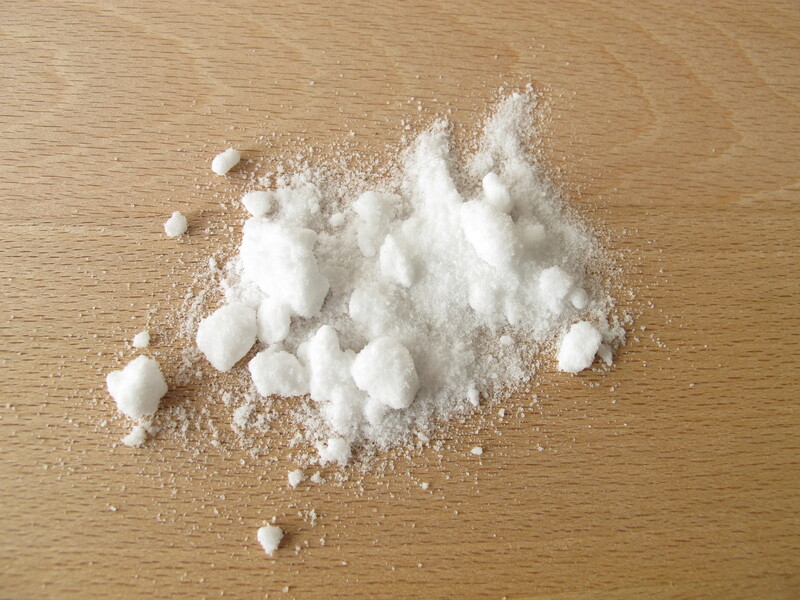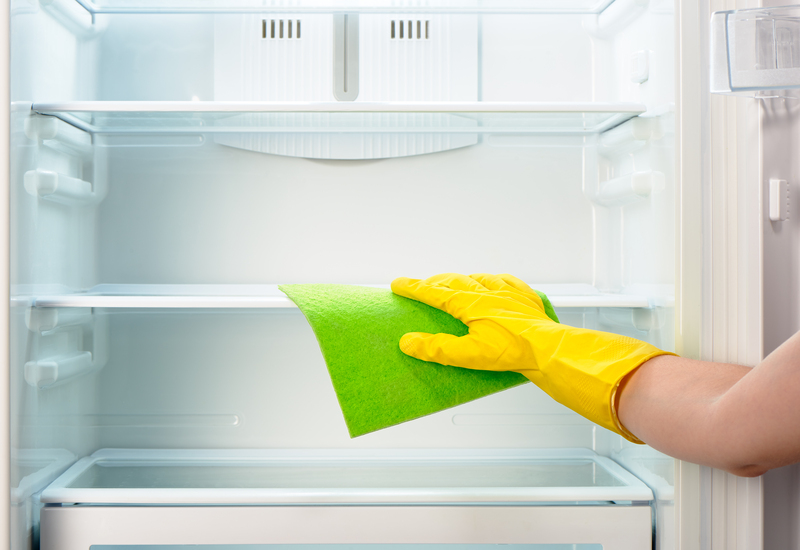Eliminate Unwanted Pet Odors in Your Living Space
Posted on 16/09/2025
Eliminate Unwanted Pet Odors in Your Living Space
Sharing your home with a beloved pet brings comfort, joy, and companionship. However, it can also introduce a common challenge: unwanted pet odors. Whether you have dogs, cats, rabbits, or exotic pets, lingering smells can quickly build up, detracting from the pleasant atmosphere of your living space. Fortunately, you can eliminate unwanted pet odors efficiently and effectively with the right strategies. In this comprehensive guide, you'll discover proven tips, techniques, and product recommendations to keep your home fresh, clean, and inviting for both residents and guests alike.
Understanding the Sources of Pet Odors
Before you can successfully remove pet smells from your home, it's essential to identify what causes them. Pet odors arise from several sources, including:
- Pet fur and dander: Shed fur and microscopic skin particles can trap odors and disperse them throughout your living space.
- Litter boxes and cages: Cat litter, bird cages, rabbit hutches, or rodent enclosures can harbor strong odors if not cleaned regularly.
- Accidents: Even house-trained pets can have occasional mishaps, leaving behind odors from urine, feces, or vomit.
- Poor ventilation: Stale air can intensify and prolong odor molecules in your home.
- Pet bedding and toys: Materials that come into direct contact with your pet absorb their natural scent over time.
- Wet pets: Moisture on fur or feathers can lead to that unmistakable "wet animal" smell.
By understanding and identifying these odor sources, you can take targeted action to eliminate unpleasant pet smells at the root.

Regular Cleaning: Your First Defense Against Pet Odors
1. Frequent Vacuuming and Dusting
Pet fur, dander, and dust particles serve as magnets for odors. Regular vacuuming is essential for keeping your living space smelling fresh. To eliminate pet odors from carpets and upholstery:
- Choose a vacuum cleaner with a HEPA filter to capture fine particles and allergens.
- Vacuum carpets, area rugs, and upholstered furniture at least twice a week.
- Don't forget to vacuum under furniture and in corners where pet hair accumulates.
- Use a lint roller or pet hair remover tool for smaller surfaces or delicate fabrics.
Remember, frequent dusting of surfaces will help reduce the spread of dander and keep your air fresher for longer.
2. Washing Pet Bedding and Fabrics
Wash your pet's bedding, blankets, and soft toys weekly in hot water with a mild, pet-safe detergent. Hot water helps dissolve oils and removes odor-causing bacteria. Consider adding a cup of white vinegar to the wash cycle for *extra deodorizing power*. Hang items outdoors to dry if possible--fresh air and sunlight are natural disinfectants and help eliminate lingering smells.
3. Litter Boxes and Cages Maintenance
Whether you have a cat, small animals, or birds, cages and litter boxes are notorious for producing persistent pet-related odors. Here are tips to keep them under control:
- Scoop litter boxes at least once daily.
- Completely change litter and wash the box weekly using hot water and fragrance-free soap.
- Use highly absorbent, low-odor litters specially formulated for odor reduction.
- Clean cages and enclosures for small animals at least once a week, and spot-clean whenever you notice soiling.
- Regularly replace bedding and nesting material.
Pro tip: Place an open box of baking soda nearby (but out of reach of pets) to absorb stray odors.
Deep Cleaning Solutions to Eradicate Stubborn Odors
1. Steam Cleaning Carpets and Upholstery
Sometimes, regular vacuuming isn't enough--especially after pet accidents or extended exposure to dander. *Deep-clean your carpets and upholstery* every few months using a steam cleaner with a pet-safe cleaning solution. The heat penetrates fibers, dissolves stains, and removes odor-causing bacteria.
- Rent a machine from a local store or invest in a pet-specific model for regular use.
- Pay extra attention to high-traffic areas and your pet's favorite lounging spots.
- Allow surfaces to dry thoroughly; excess moisture can lead to mildew or mold, worsening odors.
2. Treating Stains with Enzymatic Cleaners
Urine, feces, and vomit accidents require prompt action. Enzymatic cleaners are specially formulated to break down the organic molecules in pet messes, eradicating both stains and their accompanying odors at the source.
- Blot up as much of the mess as possible using paper towels or an absorbent cloth.
- Apply the enzyme-based cleaner according to package directions; let it sit for the recommended time to fully neutralize odors.
- Repeat as needed for stubborn accidents or older set-in smells.
- Keep pets away from the area until it's dry to prevent remarking.
3. Deodorizing Hard Surfaces
Pet odor molecules can stick to hard surfaces like walls, floors, and baseboards. Use a *pet-safe all-purpose cleaner* or a diluted white vinegar solution to wipe down these areas regularly. For tile and sealed wood floors, mop frequently with warm water and a splash of vinegar to banish odors and keep surfaces sparkling.
Improving Air Quality for a Fresher Home
1. Boosting Air Circulation
Stagnant indoor air allows pet odors to linger. Regularly opening windows and doors increases air flow and helps flush out unwanted smells. Use fans or air exchange systems to circulate fresh air throughout your home, especially in areas where your pets spend most of their time.
2. Air Purifiers with HEPA and Carbon Filters
An air purifier designed to tackle pet dander and smells can make a remarkable difference. Look for units featuring both HEPA filters--which trap fine particles--and activated carbon filters, which absorb and neutralize odors.
- Place air purifiers in main living areas and in rooms where your pet spends the most time.
- Change or clean filters regularly for optimal performance.
Some air purifiers even offer dedicated pet mode settings to address persistent pet odors.
3. Natural Deodorizers and Fresheners
Avoid heavily scented candles and aerosols, which can mask--rather than eliminate--odors and may irritate sensitive pet noses. Instead, opt for natural alternatives to neutralize pet smells:
- Place bowls of baking soda or activated charcoal in corners of the room.
- Brew a pot of coffee or simmer a saucepan with citrus peels and cinnamon sticks for a fresh, natural aroma.
- Try essential oil diffusers, but ensure oils are safe for pets--never use oils toxic to cats or dogs.
Preventing and Managing Pet Odors Daily
1. Daily Grooming Routine
Regular grooming helps minimize shedding, dander, and skin oils that contribute to odors. Brush your pets daily to remove loose fur and distribute natural oils. Bathe dogs as needed with a veterinarian-approved shampoo; most indoor cats require only occasional baths unless otherwise recommended by your vet.
- Trim nails and clean ears to prevent the buildup of odor-causing debris.
- Keep fur surrounding the paws and rear clean to reduce the risk of soiling carpets or furniture.
2. Choosing the Right Pet Diet
Believe it or not, your pet's diet affects their odor. High-quality foods designed for your animal's breed, size, and health promote balanced digestion and reduce the risk of smelly accidents. Avoid low-grade fillers and artificial additives. If you notice persistent bad breath or strong body odor, consult your veterinarian about possible dietary changes or underlying health issues.
3. Training and Routine
Consistent training and a regular bathroom schedule help reduce accidental messes. Reinforce positive behaviors with treats and encouragement, ensuring your pet always knows where and when to do their business. For dogs, frequent walks and outdoor access are key; for cats and small animals, maintain clean litter or cage environments at all times.
Must-Have Products to Combat Pet Odors at Home
- Enzymatic cleaners (Nature's Miracle, Rocco & Roxie, Angry Orange)
- HEPA filter vacuum cleaners (Dyson Animal, Shark TruePet)
- Air purifiers with activated carbon (Levoit Core, Honeywell HPA300)
- Ultra-absorbent pet litters (World's Best Cat Litter, Dr. Elsey's Ultra)
- Odor-resistant bedding and crate pads
- Natural deodorizers (baking soda, activated charcoal, DIY vinegar sprays)
- Pet-safe cleaning wipes for spot cleaning and quick touch-ups
Investing in quality products purpose-built for pet households can save time and effort while significantly enhancing your home's atmosphere.

When to Seek Professional Help for Persistent Pet Odors
In rare cases, you may find that pet odors linger despite your best efforts. Certain materials, like old carpets or deeply soiled wood floors, may require professional intervention:
- Contact a professional carpet and upholstery cleaning service that specializes in pet odor removal.
- If odors persist in walls or subfloors, you may need specialist cleaning or even material replacement.
- For chronic or extreme odor issues, consult with your veterinarian--strong or unusual odors can sometimes signal an underlying health condition in your pet.
Acting quickly prevents odors from becoming a permanent fixture and maintains the value and comfort of your living space.
Conclusion: Enjoy a Clean, Fresh, and Welcoming Home
With consistent cleaning routines, smart product choices, and proactive pet care, you can completely eliminate unwanted pet odors in your living space. Say goodbye to unpleasant smells and hello to a home that feels fresh and inviting for everyone--pets and humans alike. Start applying these expert tips today, and transform your living environment into a truly warm, welcoming, and odor-free sanctuary!
Frequently Asked Questions (FAQ)
- What is the most effective way to eliminate pet odors from carpets?
Regular vacuuming, immediate spot cleaning with enzymatic cleaners, and periodic steam cleaning are the most effective approaches to remove pet smells from carpets. - Is it safe to use scented candles or sprays to mask pet odors?
While some products are pet-safe, many air fresheners and candles only mask odors and may contain ingredients that irritate sensitive noses. Prioritize natural solutions and odor demolishing methods. - Can diet help reduce my pet's body odor?
Yes, a high-quality diet supports better digestion and skin health, which can minimize unwanted odors. Speak to your vet if you're concerned about persistent smells.
Remember: With the right approach, you can make pet odors a thing of the past and enjoy a beautifully clean, comfortable home every day of the year!





